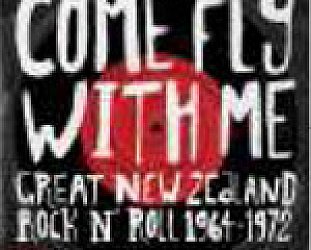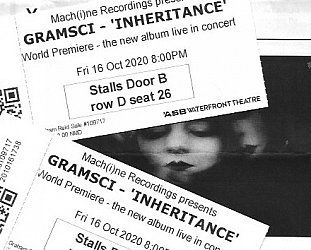Graham Reid | | 1 min read

Anyone who thinks contemporary pop is just working familiar tropes – and let's be honest, much of it is – should turn their attention to recent releases by the likes of Squirrel Flower, Merk, Jane Weaver, Virginia Wing, and Billie Eilish whose 2019 debut When We Fall Asleep, Where Do We Go? was an astute, subtle and largely understated and downbeat outing from the then 17-year old.
For that we must also co-credit her producer brother Finneas who again is by her side for this much anticipated follow-up which – while maintaining that downlow vibe and being overlong at 56 minutes – pulls together dream-pop ballads (My Future), horizontal and stoned techno (Oxytocin), quasi-choral vocals (the opening of Goldwing before the minimal beats come in) and more.
The joke used to be that artists had four years to write their debut album, four months to write their second while touring, and by their third they were writing about hotel rooms and being on the road.
Eilish's second album is about what she has been through, the demands of stardom, uncertainty and so on: the standard complaints of those who yearned for fame only to find when it came it wasn't what they'd wished for.
It's hard to feel much sympathy for a poor little rich girl who is living the life her young fans envy, but . . .
Eilish and Finneas sell this conceptual album by virtue of the subtle melodies, her world-weary delivery (she's 19 but clearly over the star on the dressing room door, the sexual innuendo from men and soical media trolls). So when songs trickle to an end it seems the natural conclusion.
And Finneas' deft production allows for considerable space but also creates and atmospheric ambience on songs like the ennui-filled Halley's Comet.
The quiet, spoken-word Not My Responsibility directly addresses the social media chatter in a way which titillates and rejects: “Do my shoulders provoke you . . . isn't that what you want? . . . Though you've never seen my body, you still judge it . . . is my value based only on your perception?”
Not everything works of course: Lost Cause is a weak, rhyming couplet trip-hop piece where Eilish lets the production carry it through her half-awake vocal; and some might find the whole low mood a bit underwhelming on cursory listens.
The explosion'n'distortion comes in the title track near the end which starts in the same subdued mood as what has preceded it then throws fireworks into the burning bin in its second half.
On the album cover the immaculately groomed Eilish (shoulder bared) looks bored and tired and a long way from what the ironic title suggests.
The album contents confirm her mood, but she and Finneas manage to turn this into art . . . although some might just hear the complaints of someone has it all.
.
You can hear this album on Spotify here





post a comment